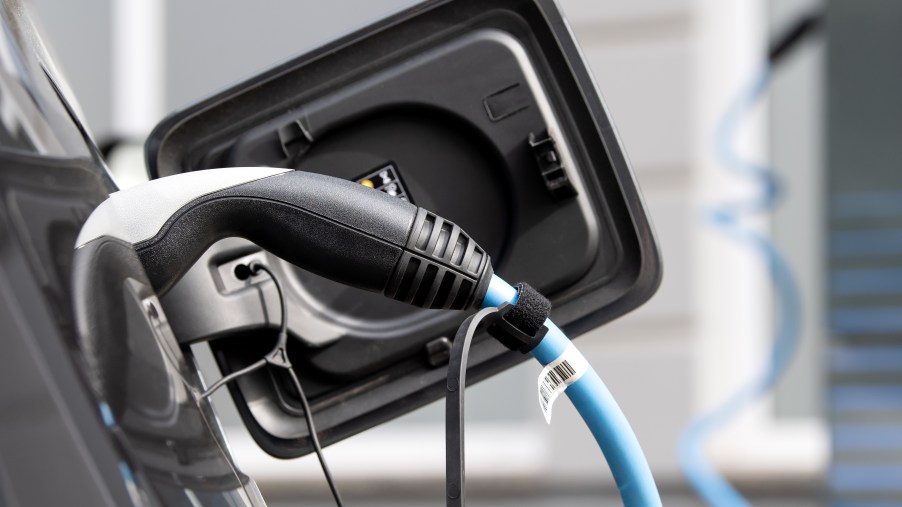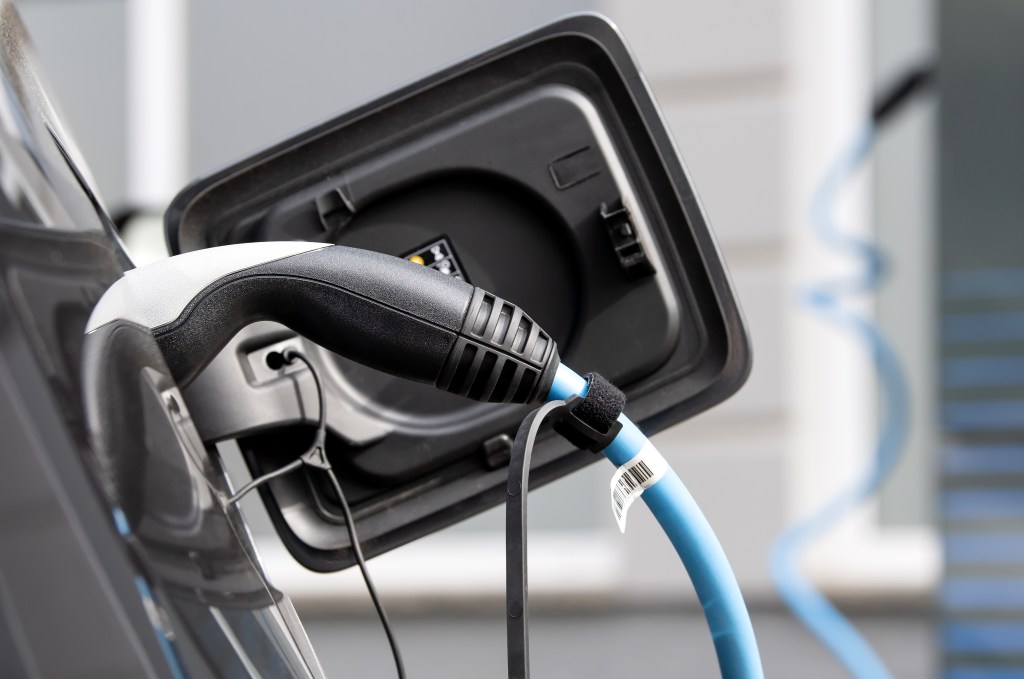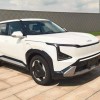
Should You Buy an EV or a Plug-In Hybrid?
If you’re in the market for a new car and are putting efficiency at the forefront of your purchase, then you’re probably thinking about buying an electric vehicle (EV) or a plug-in hybrid. You might also be wondering which type of eco-conscious vehicle would be right for you. Should you choose an EV? Or would you be better off with a plug-in hybrid?

EV vs. Plug-in hybrid: What’s the difference?
First things first, we should probably talk about what makes plug-in hybrids different from EVs. As the name suggests, plug-in hybrids are hybrid cars that can also be plugged in and charged. According to Autotrader, a plug-in hybrid uses two different powertrains. While an electric motor helps the vehicle go a limited distance, a gasoline engine kicks in so that the vehicle can keep moving until its electric motor has been recharged.
EVs, on the other hand, are precisely that: electric vehicles. Unlike a plug-in hybrid, an EV doesn’t use gasoline at all. Instead, you simply plug an EV in, charge it up, and go. The only problem, or rather thing to remember, about an EV is that once it’s out of power, it’s really out of power. Fortunately, EVs often offer a better range than plug-in hybrids do. Unfortunately, that also means a higher price tag.
The pros and cons of buying a plug-in hybrid
As with everything, there are pros and cons to buying a plug-in hybrid. On the upside, a plug-in hybrid can function as both an EV and a hybrid. If it loses its charge, it won’t leave you stranded because it has a gasoline-powered engine to fall back on. You can take advantage of federal and state tax incentives when buying a plug-in hybrid too.
Unfortunately, there are some downsides to buying a plug-in hybrid. Edmunds reports that plug-in hybrids tend to be on the more expensive side. A plug-in hybrid won’t have you avoiding the gas station altogether, either. And, you’ll still have to plug it in daily for owning one to make sense.
The pros and cons of buying an EV
Much like with a plug-in hybrid, there are plenty of pros and cons to buying an EV. Autotrader reports that one of the many benefits of purchasing an EV is that EVs don’t require any fuel. For eco-conscious buyers looking to minimize their carbon footprint, that’s a pretty big win.
Buying an EV can also save you money. Not only will you be saving on fuel costs, but you can also take advantage of federal and state tax incentives that are bound to save you some money on your new car purchase too.
Then, there are the drawbacks to buying an EV. The biggest problem with EVs is range. While a plug-in hybrid can count on gasoline as a backup, EVs can’t. An EV like the Tesla Model S can travel nearly 400 miles on a single charge, but not all EVs can make it quite that far. EVs like the Model S tend to be pretty expensive too.
How to figure out if an EV or a plug-in hybrid is right for you
The best way to figure out if you should buy an EV or a plug-in hybrid is to ask yourself a few key questions. How far do you need to drive between charges? How often and where do you plan on charging your vehicle? And according to Cars.com, public charging stations should not be part of the equation when answering this question.
It’s also worth asking yourself how much you’re willing to pay for your next vehicle. While there are federal and state tax incentives available, not all vehicles qualify for them. Cars.com reports that these funds won’t come back to you until your next tax return, either. The amount you’ll get back also depends on your income level. In other words, Cars.com reports, you may have to wait months to see those incentive funds and you might not even get the full amount. For some, that could make buying certain models cost prohibitive.
You’re going to have to do some research
In the end, you’re going to have to do some research and some thinking because buying an EV or a plug-in hybrid does depend a lot on your personal lifestyle and budget. Ask yourself those key questions, visit a local dealership and get an understanding of the different EV and plug-in hybrid models available. Take a few out for a test drive and then you should be able to determine whether or not an EV or a plug-in hybrid is right for you.



